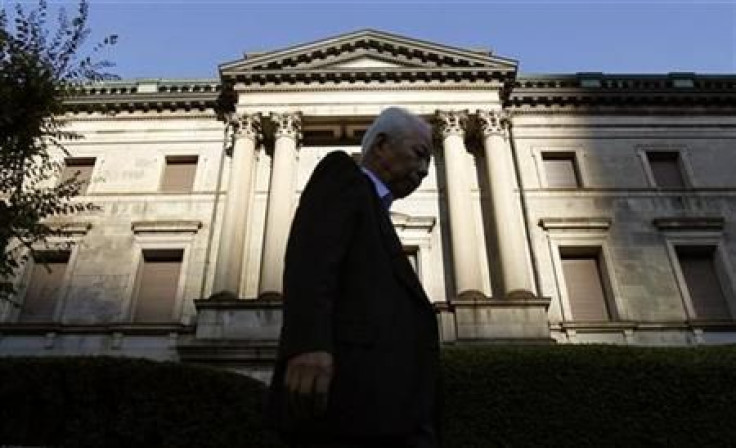Bank Of Japan Aug.7-8 Policy Meeting Preview: BOJ To Leave Monetary Policy Unchanged

With the latest economic data showing tentative signs that the Bank of Japan’s aggressive stance is working, additional easing is unlikely at this week’s two-day meeting, which concludes on Thursday. The BoJ is widely expected to maintain its pledge of increasing the monetary base at an annual pace of about 60 trillion to 70 trillion yen ($600 billion-$700 billion).
Since the BoJ’s last meeting, there have been improvements in the economy. The central bank’s preferred measure of “core” inflation, which excludes some fresh foods, has turned positive in June, although this still largely reflects the weakness of the exchange rate rather than an increase in underlying price pressure. Haruhiko Kuroda, Bank of Japan governor, said it is “highly likely” that inflation will reach 2 percent in the second half of fiscal year 2015.
Kuroda has indicated that a condition for further easing is the implementation of the consumption tax hike. “The central bank will therefore likely withhold additional easing until a decision has been taken in order to maintain pressure on the government,” Marcel Thieliant, an economist for Capital Economics, said in a note to clients.
Today, Japan’s gross public debt is by far the highest among advanced economies, standing close to 240 percent of GDP.
“Without a boost to revenues, things will only get worse given ballooning social costs in years to come, driven by a rapidly aging population,” HSBC economist Frederic Neumann warned. Last June, the previous government therefore pushed through a law stipulating that the consumption tax will be hiked to 8 percent in April of next year and, once more, to 10 percent in October 2015.
The International Monetary Fund said on Monday that the hike was an "essential first step" to fix Japan's fiscal problems, and should not be delayed. "The absence of credible fiscal and structural reforms could weigh on confidence and undermine the success of the started reforms. This would not only be detrimental to Japan, but also for the rest of the world," the IMF said.
The IMF's report estimated that if the sales tax were not increased, Japan's net public debt would rise to around 245 percent of GDP by 2030, compared with 210 percent if the tax hike was implemented as scheduled.
However, Japan's Cabinet Office estimated on Friday that the pace of the nation's economic growth would likely slow down sharply in fiscal 2014 if the sales tax increase is implemented.
In its mid-year economic review, the government predicted that the real GDP for the fiscal year starting next April would expand 1.0 percent, sharply lower than its 2.8 percent growth forecast for the current fiscal year.
Next week, economic data are expected to show that the Japanese economy grew by a respectable 0.9 percent (3.6 percent annualized) between April and June, following the 4.1 percent growth in January-March.
“At issue is whether the economic recovery under Abenomics is strong enough to get past the effects of a consumption tax increase,” said Masayuki Kichikawa, MD & Chief Japan Economist at the Bank of America Merrill Lynch, in a note to clients.
According to press reports, the Japanese government has asked for an evaluation of alternative options to the planned tax increase. The government has repeatedly said the crucial data on which it will base the decision is the second-quarter GDP. The first GDP estimate will be published on Aug. 12. In recent days, the government has clarified that it will focus on the second estimate of the data, due on Sept. 9.
Capital Economics’ Thieliant said: “This leaves the October meeting, when the board updates its economic assessment in the twice-yearly ‘Outlook for Economic Activity and Prices’ as the next possible venue to announce additional easing. But with economic data still looking strong for now, a delay to next year looks more likely.”
© Copyright IBTimes 2024. All rights reserved.












